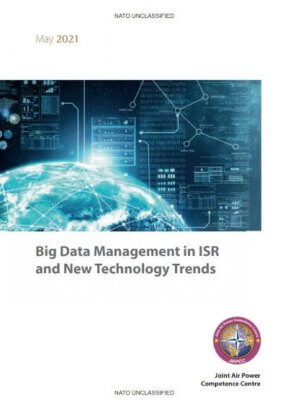The digital revolution and the endless use of data are transforming the way we live and work. Simultaneously, new technologies through data are providing great opportunities to make military operations different from the past. Command and Control (C2) and Multi-Domain Operations (MDO) are undergoing profound transformations as the availability and transmission of data increase exponentially. In this context, the use of the vast amounts of data enables Intelligence Surveillance and Reconnaissance (ISR) to provide more accurate and timely analysis to support the decision-making process and situational awareness at all levels. Recently, competitor countries have been exploring new technologies to gain an advantage in international competition and seek significant benefits from increasingly available data in military operations. The key challenge is the comprehension and ability to understand the significance of Big Data and manage it, so that NATO can finally exploit its potential and maintain information dominance.
Starting with NATO ISR doctrine and C2 concepts, the present NATO UNCLASS study offers an understanding of Big Data from which it is possible to better explore and identify the correct algorithms. This research combines the DOTMLPF-I approach with academic and scientific studies. The aim is to optimize ISR outcomes by rapidly visualizing the result of the fusion of enormous quantities of data collected by sensors, providing accurate and timely intelligence analysis. Big Data management is also interconnected with other emerging and disruptive technologies like Artificial Intelligence (AI) and Machine Learning (ML). Their merging is what will become the real game-changer in maintaining information superiority in the future. Accordingly, the study also provides an overview of new technological trends for ISR.











